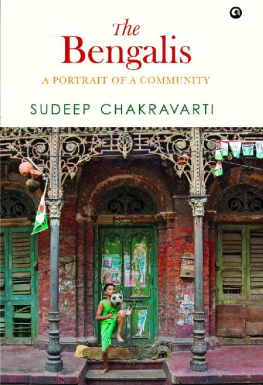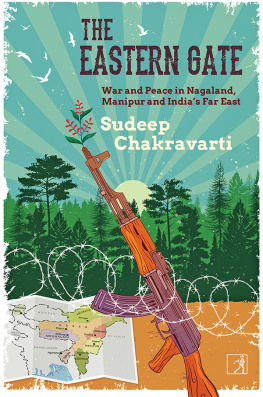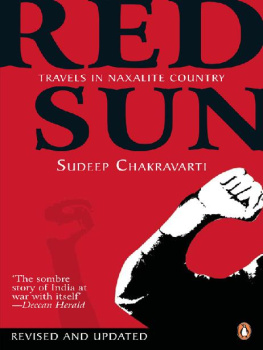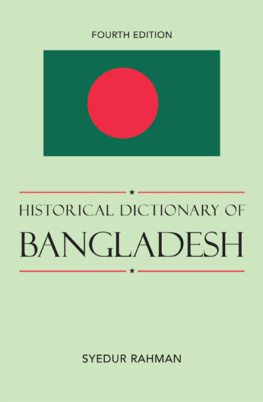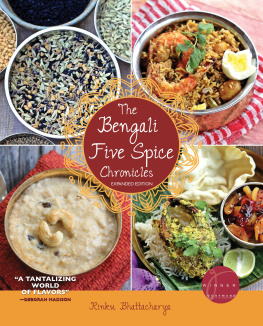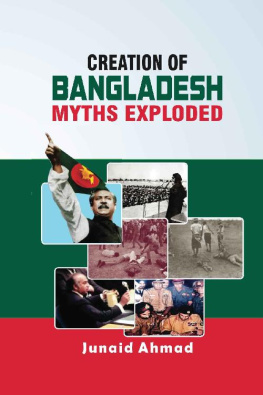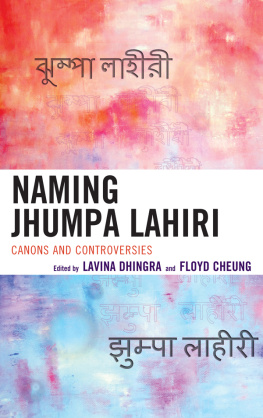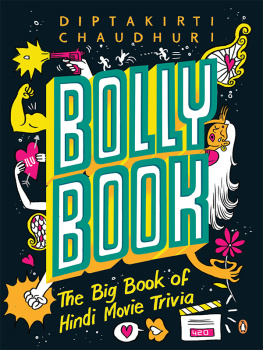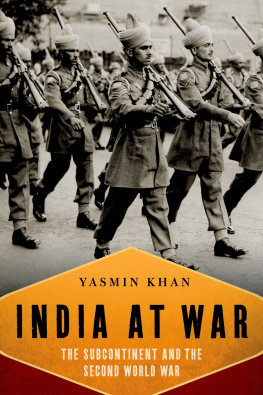The
Bengalis
Also by Sudeep Chakravarti
Non-fiction
Clear.Hold.Build: Hard Lessons of Business and Human Rights in India (2014)
Highway 39: Journeys Through a Fractured Land (2012)
Red Sun: Travels in Naxalite Country (2008)
Fiction
The Avenue of Kings (2010)
Tin Fish (2005)
ALEPH BOOK COMPANY
An independent publishing firm
promoted by Rupa Publications India
First published in India in 2017
by Aleph Book Company
7/16 Ansari Road, Daryaganj
New Delhi 110 002
Copyright Sudeep Chakravarti 2017
All rights reserved.
The author has asserted his moral rights.
The views and opinions expressed in this book are the authors own and the facts are as reported by him, which have been verified to the extent possible, and the publishers are not in any way liable for the same.
No part of this publication may be reproduced, transmitted, or stored in a retrieval system, in any form or by any means, without permission in writing from Aleph Book Company.
ISBN: 978-93-86021-04-5
1 3 5 7 9 10 8 6 4 2
This book is sold subject to the condition that it shall not, by way of trade or otherwise, be lent, resold, hired out, or otherwise circulated without the publishers prior consent in any form of binding or cover other than that in which it is published.
To
Peter, Indrani, Swapan, Sreemati, Azam, Rahul, Nasreen,
Soma, Nazly, Sumangali, Hirak, Erika, Navid
My brothers, sistersand fellow survivors
And variously jthu, pishi, kku, aunt, uncle to Maya,
an inheritor of a rainbow family
a hell full of good things
Fourteenth century CE Moroccan traveller Abu Abdullah Muhammad Ibn Abdullah al-Lawati al-Tanji Ibn Battuta, recounting a description of Bengal
Dngy bgh, jol kumir.
(Tiger on the shore, crocodile in the water)
Bengali proverb
Ever known a Bengali to move ahead?
Badal Sircar, in the play Michhil ( Procession)
Ni mmr chy kn mm bhl
(Better to have a blind uncle than no uncle)
Bengali proverb
mr shnr Bngl, mi tmy bhlbshi
(My golden Bengal, I love you)
Rabindranath Tagore
Contents
A Note on Bngl
There is deliberate use of Bngl phonetics in this book. To familiarize readers who are unfamiliar with the language and yet wish to taste it and pronounce it in a way that does not require them to use the expertise of the linguist and scholar (Bngl in Roman script is a complicated matter), I have simplified some established norms after consulting linguists and scholars.
This has meant avoiding transliteration and what is called the International Phonetic Alphabet, and staying closer to transcription. The arrangement is not perfect, but is intended to reach an audience beyond that of the linguist, scholar and reader of Bngl.
To reduce confusion it is applied mostly to a few vowels.
An example: if Bngl were to be written as Bangla, then those familiar with pronunciation in English but unfamiliar with the language of the Bengalis may pronounce it as Bang (as in hang) la. The emphasis on removes both that possibility and the need to write it as the more cumbersome Baangla. Besides, to the Bengali bang is frog, quite removed from the stately, Sanskrit-laden Vanga or Banga, which we pronounce as Bong.
For aw as in thaw the capital or lower-case o is employed, distinct from the o as in gowhich is shown in this book as . So it is Bongbndhu, friend of Bengal, the honorific associated with Bangladeshs liberation hero, Mujibur Rahman; and roshgll, the dessert some of us would go to war over to defend its provenance and honour.
For the ay sound I have used , for instance in k?who?
U and i are left alone. So u is used both for the softer and extended oo that Bngl has, for say, our staple fish, rui, or unish, nineteen, in which u is not pronounced as you would in punish; but as you might put and moot. Both these Bngl words also take in the i for the soft and extended ee (as you would the i in indicate and the extended ee sound in unleash.) I was advised that use of diacritic in u and i would complicate mattersbest to keep things as simple as possible. But for a few extended ee sounds for which i is entirely inadequate, as in sheem, the broad bean that is for us a delicacy, a double ee as in seem appeared to be the judicious way.
The ch sound as in chamber is left alone. The explosive chh, common in Indic languages, is left to itself, as in chhn, our word for hung curd or paneer. The sound for t remains as in tea, th being used as with the softer aspect in theme and also for a harder aspect as in though. Similarly, k remains as in kind, while kh is like a soft cough, as in khom, to forgive.
Bngl does not possess a sharp s as in set (the equivalent would be sht, though we do have a soft, harder and hard sh sounds depicted by distinct consonants). For simplicity the book employs sh for all such.
We dont have a v either, the closest consonant resembling it is bho, as in Bhutan, the country, or bhlbsh, one of our words for affection and love. Revolver in Bngl would be a less impressive-sounding, but equally deadly, rebholbhr.
Or a w: we dont have that either. English (Ingrji) accented with Bngl would have would close to ood and work as something like uork.
For names of people the book employs Anglicized versions, quite the established fashion among Bengalis, occasionally offering the Bngl alongside for flavourRabindranath and Rbindrnth, for example. Wherever I have used archival sources in Bngl, the names of books, authors and references from the book employ Bngl phonetics.
For names of places too the book uses Anglicized versions with the occasional Bngl phonetic for flavour, except Kolkata, which has officially jettisoned Calcuttaused here in that form only when quoting archival sources. Similarly, while quoting from archival sources I have remained faithful to the spellings of the original, as in Dacca for Dhaka; or Cutwa for Katwa, near the colonial-flavoured Burdwannow generally spelled Bardhaman, but in Bngl pronounced Bordhmn.
Bngl, entirely phonetic and logical in its own universe, was never meant to be Englisha language comprising a seemingly random, bewildering nightmare of rules, a language that many urbanized Bengalis habitually use for emphasis both in perfect English or heavily accented by Bengali. But if you did not taste the language we love and cherish, a language we fought for and even died for, how would you know us?
And, so, Bngl it is.
Prologue
mr K ?
Who, What, Why?
If you are Bengali, you may know much of what you read here.
Equally, if you are Bengali, you may be ignorant of some of these matters, or banish such thoughts and realities of being Bengali to the furthest recesses of your consciousness on the assumption that, if such things do not matter to you, a Bengali by birth and assiduous practice, they may not matter at all.
If you are not Bengali, to the Bengali you may not matter at all, even though this book is written as much for you as any Bengali, to know us and engage with us, although that engagement is a fraught exercise. To begin, you are what Bengalis call non-Bengali. It is closer to non-person than persona non grata, but that would be splitting hairs, which the Bengali can perform even when asleep. By illogical extension, ethnically, intellectually, culturally and historically your every not-Bengali fibre, provenance, present and future may be construed by the Bengali chauvinist as being one of colossal insignificance.

